TheHerbProf.com is a treasure trove of knowledge for those interested in natural healing and herbal remedies. The website is run by Paul Johnston MD. A naturopathic who has not only received extensive education in the field but also has personal experience in self-healing.
Shardunika, also known as Gymnema sylvestre, is a herb that has been used for centuries in Ayurvedic medicine to treat various ailments. This herb is native to India, Africa, and Australia and has been used for its medicinal properties for thousands of years. Ayurvedic practitioners have long used shardunika benefits to treat diabetes, high blood sugar, and other related conditions.
Shardunika is known for its ability to reduce sugar cravings and improve glucose control. Studies have shown that this herb can help lower blood sugar levels, reduce cholesterol and triglycerides, and aid in weight loss. Additionally, shardunika has been found to have anti-inflammatory properties that could help with conditions such as arthritis and other inflammatory diseases.
In this article, I will explore the various benefits of shardunika and how it can be used to improve overall health. Whether you are looking to manage your blood sugar levels or reduce inflammation, shardunika may be the herb you need.
So, let’s dive in and discover the many benefits of this amazing herb.
Historical Significance and Origin – Shardunika Benefits
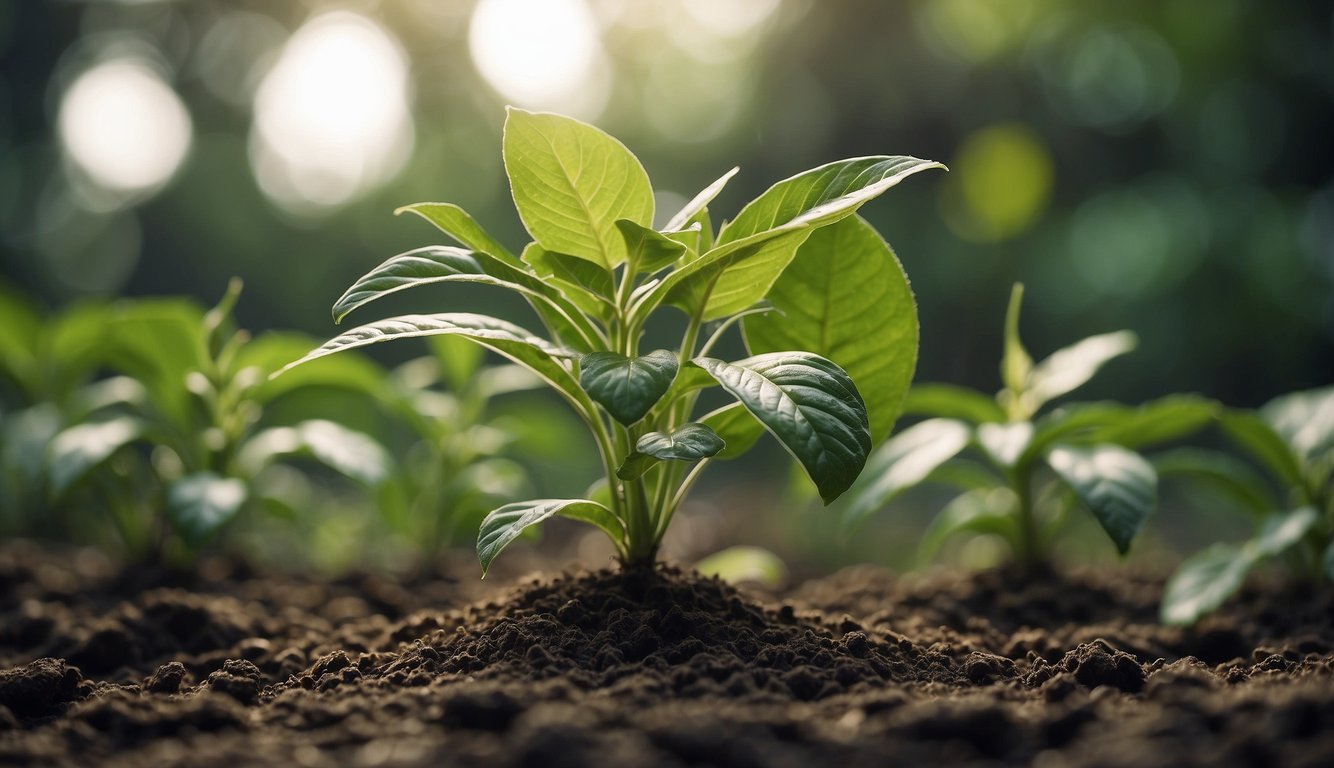
As an Ayurvedic herb, Shardunika has a rich history and a variety of traditional uses. In this section, I will explore the roots of this herb, its traditional names, and its historical significance.
Ayurvedic Medicine Roots
Shardunika, also known as Gymnema sylvestre, is a herb that has been used in Ayurvedic medicine for centuries. Ayurveda is an ancient Indian system of medicine that emphasizes the use of natural remedies and lifestyle practices to promote health and well-being.
In Ayurvedic medicine, Shardunika is often used to treat a variety of conditions, including diabetes, high cholesterol, and digestive issues. It is believed to have a number of beneficial properties, including anti-inflammatory, antioxidant, and hypoglycemic effects.
Traditional Names and Synonyms
Shardunika is known by a variety of traditional names and synonyms, depending on the region and culture. In Hindi, it is commonly known as Gurmar, which translates to “the destroyer of sugar.” This name reflects the herb’s ability to regulate blood sugar levels and reduce sugar cravings.
In Australia, Shardunika is sometimes referred to as the Australian cowplant, while in other regions it is known as periploca of the woods. These names reflect the herb’s physical characteristics and the environment in which it grows.
Overall, Shardunika has a long and fascinating history, and its traditional uses continue to be studied and explored today. As we learn more about this powerful herb, we may discover even more ways in which it can be used to promote health and well-being.
Botanical Profile – Shardunika Benefits
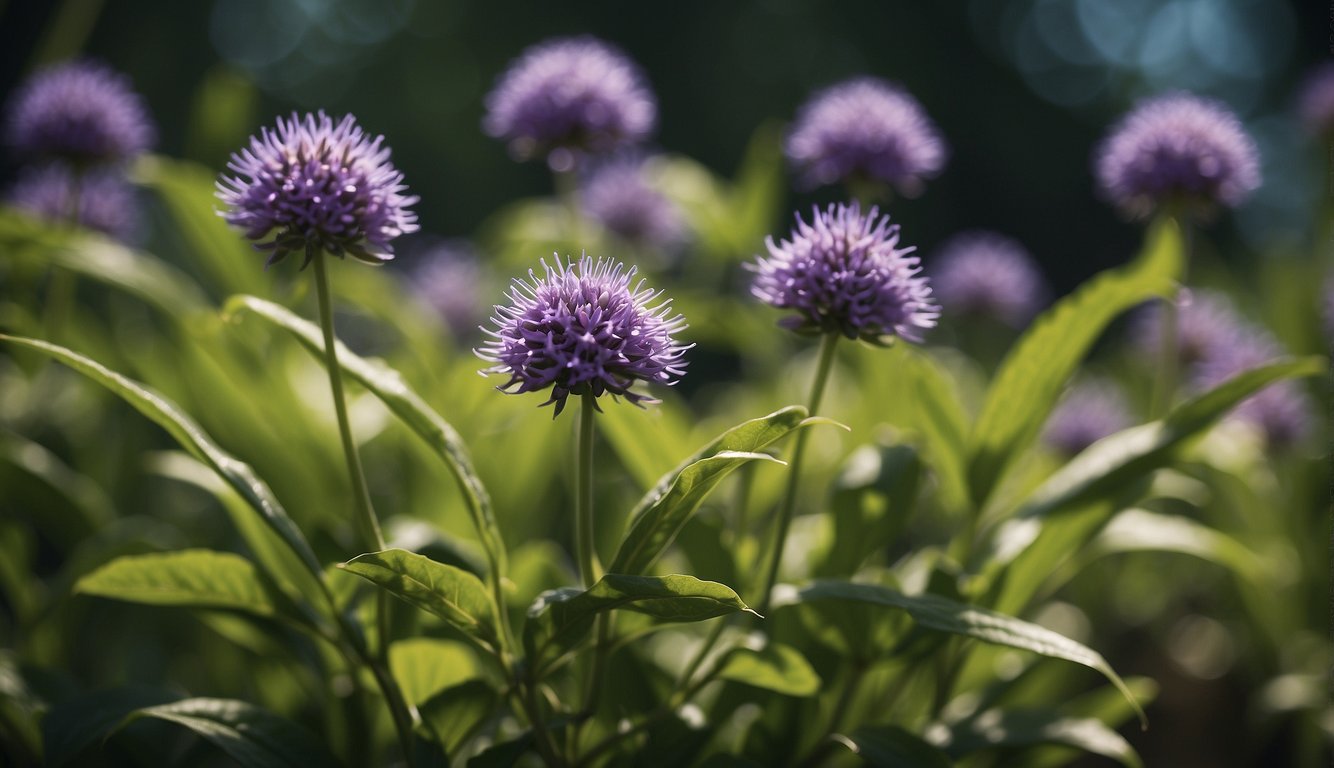
Plant Characteristics
Shardunika, also known as Gymnema sylvestre, is a tropical plant native to the forests of India, Sri Lanka, and other parts of Southeast Asia. It is a woody climbing plant that can grow up to 20 feet in height.
The leaves of the plant are glossy, dark green, and oval-shaped, with a leathery texture. The plant produces small, yellowish flowers that are fragrant and attractive to bees.
Shardunika is a hardy plant that can grow in a wide range of soil types, but it prefers well-drained, fertile soil. It is a sun-loving plant that requires full sun to grow and thrive.
It is a drought-tolerant plant that can survive in areas with low rainfall.
Active Compounds – Shardunika Benefits
Shardunika contains several active compounds that are responsible for its medicinal properties. The most important of these compounds are the gymnemic acids.
These are a group of complex molecules that are found in the leaves of the plant. There are several different types of gymnemic acids, including gymnemic acid I, gymnemic acid II, and gymnemic acid III.
The gymnemic acids are responsible for the plant’s ability to regulate blood sugar levels. They work by blocking the absorption of sugar in the intestines and reducing the amount of sugar in the bloodstream.
This makes shardunika an effective natural remedy for diabetes and other blood sugar-related conditions.
In addition to the gymnemic acids, shardunika also contains tannins and saponins.
Tannins are a type of polyphenol that are found in many plants. They have astringent properties and are often used in traditional medicine to treat diarrhea and other digestive problems.
Saponins are another type of complex molecule that are found in many plants. They have anti-inflammatory properties and are often used to treat skin conditions and other inflammatory disorders.
Health Benefits – Shardunika Benefits

As an Ayurvedic herb, Shardunika has been used for centuries to promote health and well-being. Here are some of the potential health benefits of Shardunika:
Blood Sugar Management
Shardunika has been traditionally used in Ayurveda to support healthy blood sugar levels. Studies suggest that it may help manage blood sugar levels by increasing insulin production and improving insulin sensitivity.
According to a source, preliminary studies hint at potential benefits for kidney health, although further research is needed for conclusive findings.
Weight Management and Digestion
Shardunika may also support weight management and digestive health. It has been traditionally used to promote healthy digestion and reduce sugar cravings.
Shardunika offers a wide range of benefits for various aspects of health and well-being, from boosting immunity to promoting liver health.
Cardiovascular Health
Shardunika may also support cardiovascular health. It has been traditionally used to help manage cholesterol levels and reduce the risk of heart disease.
According to a source, it may help reduce the risk of atherosclerosis, a condition in which the arteries become clogged with fatty deposits.
Anti-Inflammatory and Antimicrobial Effects
Shardunika may also have anti-inflammatory and antimicrobial properties.
According to a source, it may help reduce inflammation and fight off harmful bacteria and viruses.
Shardunika in Diet and Supplementation – Shardunika Benefits
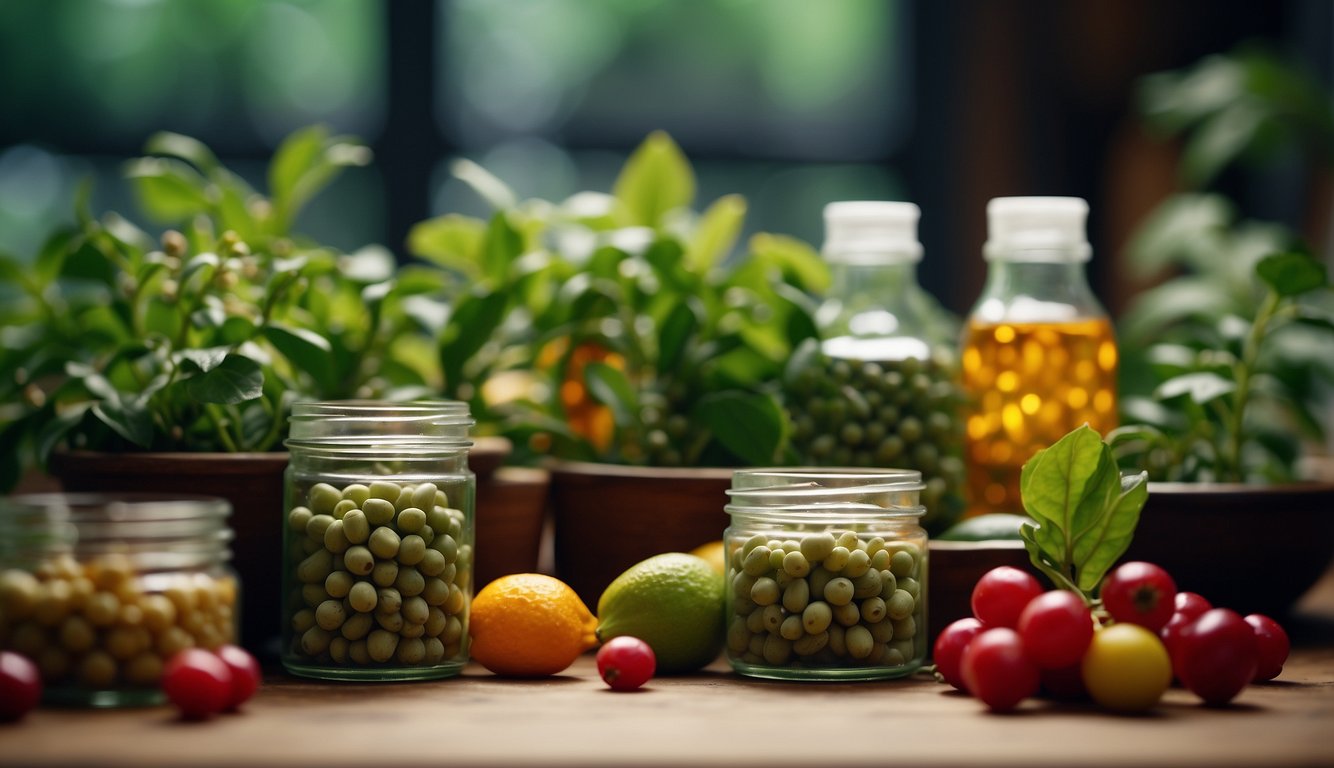
When it comes to incorporating Shardunika into your diet and supplementation routine, there are a few key things to keep in mind. Here are some important considerations:
Forms of Consumption
Shardunika is available in several different forms, including powder, capsules, tablets, and extracts.
One popular way to consume Shardunika is in the form of herbal tea. This can be a convenient and enjoyable way to incorporate the herb into your daily routine.
Dosage and Preparation – Shardunika Benefits
The appropriate dosage of Shardunika can vary depending on factors such as age, weight, and overall health.
It’s always a good idea to consult with a healthcare professional before beginning any new supplement regimen.
When it comes to preparing Shardunika for consumption, there are a few different methods to consider.
For example, if you’re using Shardunika powder, you might mix it into a smoothie or sprinkle it over your morning oatmeal. Capsules and tablets are also convenient options, as they allow you to easily measure out a precise dosage.
Impact on Metabolic Processes – Shardunika Benefits
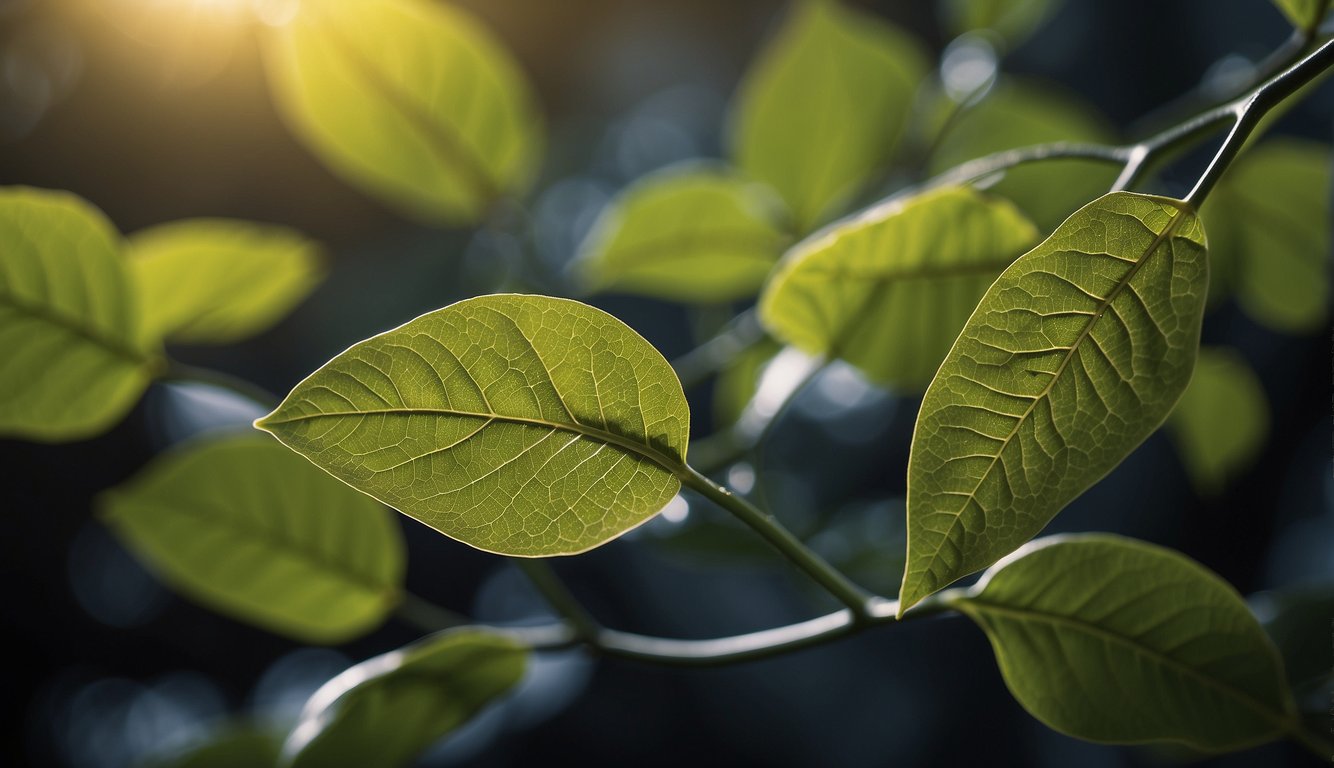
Shardunika, also known as Gymnema sylvestre, is a well-known herb in Ayurvedic medicine that has been used for centuries to support healthy metabolic processes. In this section, I will discuss how shardunika impacts insulin regulation, glucose uptake and absorption, and lipid level management.
Insulin Regulation
Shardunika has been shown to support healthy insulin levels in the body.
According to a study published in the Journal of Ethnopharmacology, shardunika has the ability to stimulate insulin secretion from the pancreas, which can help regulate blood sugar levels.
Additionally, shardunika has been shown to increase the number and activity of insulin receptors in the body, which can help improve insulin sensitivity.
Glucose Uptake and Absorption
Shardunika has been shown to support healthy glucose absorption in the body.
According to a study published in the Journal of Medicinal Food, shardunika has the ability to inhibit the absorption of glucose in the intestines, which can help regulate blood sugar levels.
Additionally, shardunika has been shown to increase the uptake of glucose by the cells in the body, which can help improve energy levels.
Lipid Level Management
Shardunika has also been shown to support healthy lipid levels in the body.
According to a study published in the Journal of Clinical Biochemistry and Nutrition, shardunika has the ability to reduce triglyceride levels in the blood, which can help improve cardiovascular health.
Additionally, shardunika has been shown to reduce LDL cholesterol levels in the body, which can help prevent the buildup of plaque in the arteries.
Potential Side Effects and Safety – Shardunika Benefits
As with any herbal supplement, it’s important to be aware of potential side effects and safety concerns when taking shardunika. Here are some important things to keep in mind:
Known Side Effects
While shardunika is generally considered safe for most people, there are some potential side effects to be aware of.
Some people may experience gastrointestinal discomfort, such as nausea, vomiting, or diarrhea, when taking shardunika.
Additionally, high doses of shardunika can lead to hypoglycemia, which is a condition where blood sugar levels drop too low.
Symptoms of hypoglycemia include weakness, shakiness, excessive sweating, and muscular dystrophy.
If you experience any of these symptoms, stop taking shardunika immediately and seek medical attention.
Consulting Healthcare Professionals
If you are pregnant, nursing, or have a pre-existing medical condition, it’s important to consult with a healthcare professional before taking shardunika.
Additionally, if you are taking any medications, especially medications for diabetes or blood sugar control, it’s important to talk to your doctor before taking shardunika.
This is because shardunika can interact with some medications, potentially leading to adverse effects.
Integrating Shardunika with Other Natural Remedies – Shardunika Benefits
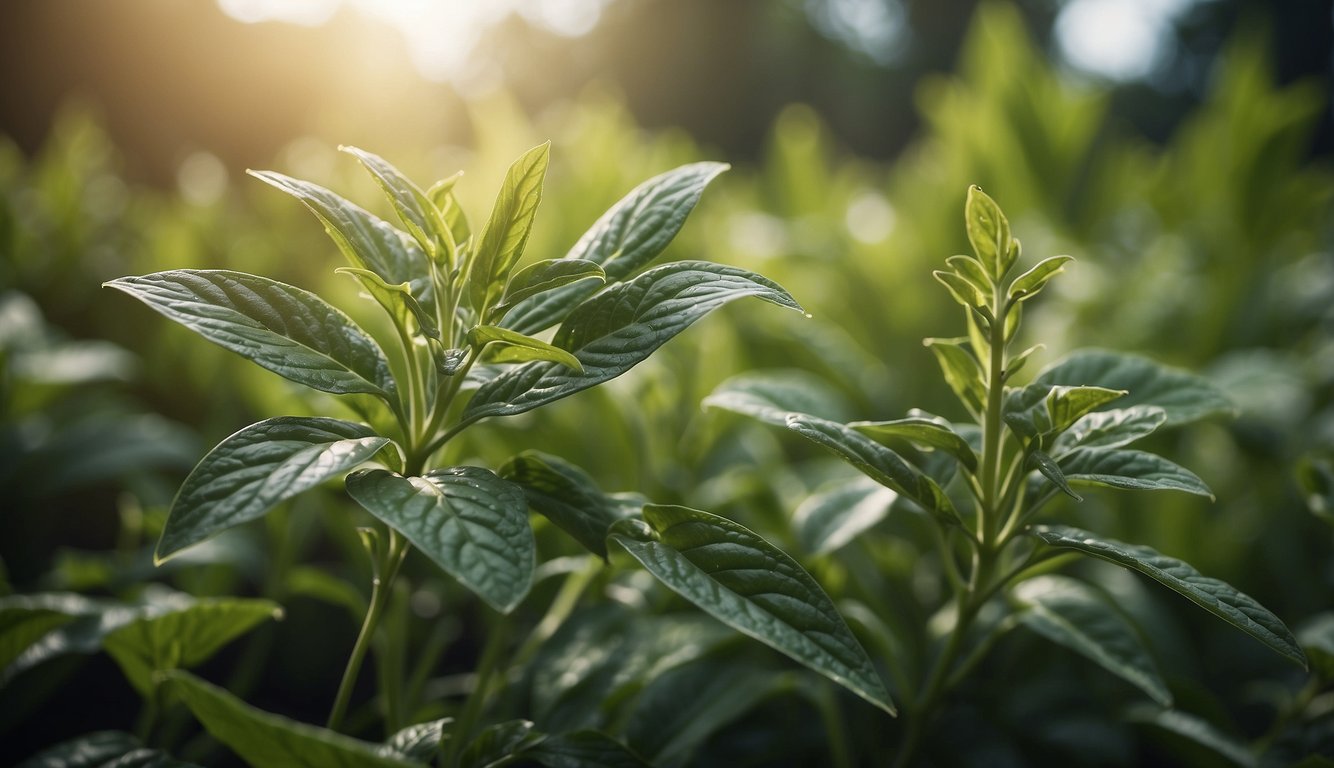
Synergistic Effects with Herbs and Spices
As someone who is interested in natural remedies, I have found that combining different herbs and spices can often have a synergistic effect, making them even more powerful together than they are on their own.
Shardunika is no exception. In fact, there are a number of other herbs and spices that can be combined with Shardunika to enhance its effects.
One such herb is turmeric.
Turmeric has been used for centuries in Ayurvedic medicine to treat a variety of ailments, and it has been shown to have anti-inflammatory and antioxidant properties.
When combined with Shardunika, turmeric can help to reduce inflammation and oxidative stress in the body, which can be particularly beneficial for those with chronic conditions such as arthritis.
Another spice that works well with Shardunika is ginger.
Like Shardunika, ginger has anti-inflammatory properties and can help to reduce pain and inflammation in the body.
It also has a warming effect, which can help to improve circulation and promote healing.
When combined with Shardunika, ginger can help to enhance its pain-relieving and anti-inflammatory effects.
Creating a Holistic Wellness Plan
In addition to combining Shardunika with other herbs and spices, it is also important to create a holistic wellness plan that addresses all aspects of your health.
This may include incorporating other natural remedies such as lemon juice and honey into your diet.
Lemon juice is a great source of vitamin C, which is important for immune function, skin health, and wound healing.
It also has alkalizing properties, which can help to balance the pH of the body and reduce inflammation.
When combined with Shardunika, lemon juice can help to enhance its immune-boosting and anti-inflammatory effects.
Honey is another natural remedy that can be beneficial when combined with Shardunika.
It has antibacterial and anti-inflammatory properties, which can help to reduce inflammation and promote healing.
It also has a soothing effect on the body, which can be particularly beneficial for those with digestive issues.
When combined with Shardunika, honey can help to enhance its digestive and anti-inflammatory effects.
Lifestyle Considerations and Holistic Health – Shardunika Benefits

As someone who is interested in natural health and wellness, I understand the importance of taking a holistic approach to maintaining good health. This means considering all aspects of our lives, including our diet, exercise habits, stress levels, and emotional well-being.
Stress and Emotional Well-being – Shardunika Benefits
Stress is a common problem in our fast-paced, modern world, and it can have a negative impact on our health in many ways.
Chronic stress can lead to a weakened immune system, increased inflammation, and a higher risk of chronic diseases like diabetes and heart disease.
It can also affect our emotional well-being, leading to anxiety, depression, and other mental health issues.
Fortunately, there are many natural ways to reduce stress and promote emotional well-being.
Some effective strategies include practicing mindfulness meditation, spending time in nature, getting regular exercise, and engaging in activities that bring us joy and fulfillment.
Healthy Eating Habits
Maintaining healthy blood sugar levels and insulin sensitivity is essential for overall health and wellness.
One way to support healthy blood sugar levels is by adopting healthy eating habits.
This means choosing whole, nutrient-dense foods that are rich in fiber, protein, and healthy fats.
Some great options include leafy greens, non-starchy vegetables, nuts and seeds, lean proteins, and healthy fats like avocado and coconut oil.
It’s also important to avoid refined sugars and processed foods, which can cause blood sugar spikes and crashes and lead to insulin resistance over time.
Shardunika Benefits: A Herbalist’s Perspective
Today, we’re going to dive into a topic that’s as sweet as the Shardunika in our gardens – Shardunika Benefits.
Now, you might be wondering, what’s so special about Shardunika? Well, it’s simple. Shardunika, also known as Gymnema sylvestre, is a powerful herb known for its ability to regulate blood sugar levels.
But here’s the fun part – Shardunika doesn’t just benefit your health. It also benefits the soil. By improving soil health, it creates a nurturing environment for your herbs to grow.
Now, let’s connect this back to our home page, theherbprof.com. Our website is all about celebrating the magic of herbs and exploring the wonderful world of herbalism. And guess what? By understanding the benefits of Shardunika, you’re contributing to this world in your own unique way.
So, next time you’re tending to your garden, remember to plant some Shardunika. Not just for its sweet benefits, but also for its benefits to the soil. After all, a happy garden is a garden where all life forms live in harmony.
References – Shardunika Benefits
Little Herb Encyclopedia, by Jack Ritchason; N.D., Woodland Publishing Incorporated, 1995
The Ultimate Healing System, Course Manual, Copyright 1985, Don Lepore
Planetary Herbology, Michael Tierra, C.A., N.D., Lotus Press, 1988
Handbook of Medicinal Herbs, by James A. Duke, Pub. CRP Second Edition 2007
The Complete Medicinal Herbal, by Penelope Ody, Published by Dorling Kindersley
Check the Following Articles!
How to Grow Coffee? Tips Used By Top Coffeemakers
How Do Potatoes Grow in the Ground?
How to Grow Tomatoes as Perennials?
Good First Time Vegetables to Grow?
Frequently Asked Questions – Shardunika Benefits
What are the health benefits of taking Shardunika?
Shardunika, also known as Gymnema sylvestre, has been used in Ayurvedic medicine for centuries to treat a variety of conditions.
Some of the health benefits of taking Shardunika include reducing sugar cravings, managing blood sugar levels, promoting weight loss, and improving digestion.
It is also believed to have anti-inflammatory and antioxidant properties.
Are there any side effects associated with Shardunika powder?
While Shardunika is generally considered safe when taken in the recommended dosage, some people may experience side effects such as stomach upset, nausea, and diarrhea.
It is important to consult with a healthcare professional before taking Shardunika, especially if you are pregnant, breastfeeding, or have a medical condition.
How does Shardunika influence blood sugar levels?
Shardunika is believed to promote healthy blood sugar levels by reducing the absorption of sugar in the intestines and increasing insulin production.
This makes it a popular natural remedy for diabetes and other conditions related to blood sugar regulation.
Can Shardunika assist in weight management?
Shardunika may help with weight management by reducing sugar cravings and promoting a feeling of fullness.
It is also believed to increase the body’s metabolism, which can help with weight loss.
What is the recommended dosage for Shardunika supplements?
The recommended dosage for Shardunika supplements may vary depending on the form of the supplement and the individual’s health needs.
It is important to follow the instructions on the label or consult with a healthcare professional before taking Shardunika.
Is Shardunika suitable for everyone or are there restrictions?
Shardunika is generally considered safe for most people when taken in the recommended dosage. However, it may interact with certain medications, such as insulin and diabetes medications.
It is important to consult with a healthcare professional before taking Shardunika, especially if you have a medical condition or are taking medication.


